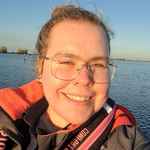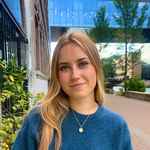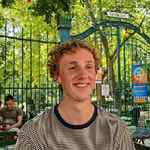Study programme
-
Year 1: discovery
This year is about getting to know the programme and the spatial lens through which social geographers and planners view society. You learn which topics and concepts are central. What 'tools' does a social-spatial scientist use to gain insights into the world around us?
You follow a fixed programme, with thematic subjects and focuse on research methods and academic writing, to finish with a group project, in which you analyse an existing spatial problem and develop a solution for a client. On top of this, these courses also focus on how the Amsterdam and Dutch context differs from other cities and countries.
-
Year 2: exploration and development
In the second year, you will apply your research skills in practice. You will conduct a study for a Dutch client and go on a week-long field trip in January. The year ends with research abroad. Additionally, you can explore your own interests through a Thematic Elective and a free-choice course.
-
Year 3: development
In your third year, you will further shape your specialisation with a second Thematic Elective. You also have free-choice credits to tailor your studies to your interests. Options include:
- additional electives
- a minor
- courses from another programme
- studying abroad for half a year
- an internship
For more information, see ‘Additional options’.
You will complete your Bachelor’s with a thesis, in which you independently collect and analyse data and apply it within a theoretical framework.
-
Introduction to Human GeographyPeriod 1Period 212
This course offers an introduction to Human Geography, exploring how geographers study social issues and places on various scales. You will be introduced to key concepts like space, place, globalization, and more, giving you a foundation for further specialization. Through readings and assignments, you will also develop academic reading and writing skills.
-
Introduction to Spatial PlanningPeriod 1Period 212
This course delves into how cities and regions are shaped by social, economic, and planning dynamics. It covers the shift from traditional top-down planning to current bottom-up approaches, focusing on Dutch practices and planning theories. You will gain analytical skills to understand urban development and cultivate creative solutions for modern challenges, structured through foundational and contemporary modules.
-
Academic SkillsPeriod 1Period 2Period 36
This course helps students build their academic skills and attitude. It covers social integration, academic culture, and applying knowledge to real observations. You'll work on a research project, do interviews, and present findings, ending with academic poster presentations.
-
Thinking SpatiallyPeriod 46
Learn about social-spatial research, key research approaches, and gain practical skills in Geographical Information Systems (GIS). The course includes lectures, tutorials, and GIS lab sessions, helping you understand and apply spatial research methods.
-
Urban Dynamics: Amsterdam in ContextPeriod 4Period 512
This course teaches how cities change and why. We study factors like society, economics, and technology affecting cities, especially in Amsterdam. Using concepts from earlier courses, you'll grasp how geographers and planners understand and shape urban changes. This prepares you for more focused topics in later years.
-
Research Methods 1Period 56
In this course, you'll explore three essential aspects: Statistics, Quantitative Analysis, and GIS/Cartography. The Statistics section delves into data structure, univariate and bivariate analysis and causal models. The Quantitative Analysis part, also employing Excel and SPSS, emphasizes interpretation and data sources. Lastly, the GIS/Cartography component focuses on creating thematic and plan maps and how to perform simple spatial analyses using ArcGIS Pro.
-
Research Project: RegionalPeriod 66
In this course, you'll focus on redeveloping areas in the Amsterdam region due to limited space. You'll research an assigned area, considering different stakeholders' perspectives like housing corporations and residents. Through group work, you'll create a vision for the area's future development based on your stakeholder's viewpoint, applying knowledge from other first-year courses.
-
Restricted-choice electives: Thematic ElectivePeriod 4Period 512
During the restrictive choice elective you get the opportunity to choose one of the following thematic electives: International Development Studies, Migration & Population Dynamics, Spatial Analysis (GIS), Urban Planning: Contesting the City, Financial & Economic Geography, Political Geography, Spatial Implications of Environmental Change, Stadsgeografie, Urban Planning: Building the City and Urban Planning: Moving in the City.
-
Restricted-choice electives: SpecialisationPeriod 56
During the restrictive choice elective you will get the opportunity to specialise in the subject of your choice: Financial & Economic Geography (seminar), Political Geography (seminar), Spatial Implications of Environmental Change (seminar), Stadsgeografie (seminar), Urban Planning: Building the City (seminar), Urban Planning: Moving in the City (seminar)
-
Research Methods 2Period 1Period 212
Expand your GIS skills, by focusing on analysing spatial issues. You'll work with vector and raster data, overlay analysis, proximity and range analysis, and spatial data collection. You'll also improve your interview skills and ethnographic observations, analysing qualitative data using coding software. Additionally, you'll learn statistical analyses such as data manipulation, causal analysis, and multiple regression.
-
Research Project: AbroadPeriod 66
Research Abroad includes a 1-2 week study trip abroad, with a preparatory program in Amsterdam. You choose a destination with a specific focus theme, then attend info sessions to learn more. The intensive program involves workshops in Amsterdam, on-site activities abroad, and fieldwork assignments. You'll work in small groups on a research theme, supervised by UvA lecturers, and complete a research report and presentation in English.
-
Research Project: The NetherlandsPeriod 2Period 36
During the Research Project, students learn to collect and analyse data and report their findings. The course lasts 4 weeks: Week 1 focuses on fieldwork, Week 2 on quantitative analysis of survey data, Week 3 on thematic analysis of interviews, and Week 4 on spatial analysis using GIS and presentations.
-
Specialisation - Planning:Period 1Period 2Period 4—
-
Theories of Spatial InterventionsPeriod 1Period 212
In this course, you'll discover how to organise interventions in space. We'll start with theories and move to real-life cases. First, we explore theoretical approaches, connecting sociology, philosophy, urbanism, and more. Then, you'll work on practical solutions using different knowledge sources.
-
Spatial Planning: Theory & PracticePeriod 46
This course is taught by two lecturers with professional roles outside the University of Amsterdam. David Evers is a Senior Researcher at the Netherlands Environmental Assessment Agency (PBL), and Stan Majoor leads a research program at the Amsterdam School of Applied Sciences (HvA) focusing on local planners. The course includes two separate 3-week modules related to the lecturers' expertise.
-
Specialisation - Human GeographyPeriod 1Period 2Period 4—
-
Geographies of InequalityPeriod 1Period 212
This course examines how inequality persists across different scales, influencing daily lives. From post-War era to now, students study key inequality theories and real-world cases, covering class, race, gender, environmental justice, and more. You'll learn about the political and economic roots of contemporary inequalities, exploring their history and potential solutions.
-
Human Geography: Theory & PracticePeriod 46
This course focuses on human geography as a science and profession. You will learn about various approaches like environmental determinism, positivism, Marxism, and feminism, and their ethical aspects. You will also explore how geographical research is applied in society and evaluate recent articles in the field.
-
Restricted-choice electives: Thematic ElectivePeriod 1Period 2Period 4Period 512
During the restrictive choice elective you get the opportunity to choose one of our thematic electives. You can for instance choose for International Development Studies, Migration & Population Dynamics, or Financial & Economic Geography. Explore an overview of all the electives in our Course Catalogue (linked below).
-
Research Methods 3Period 1Period 2Period 4Period 56
-
Free-choice electives: Free electivesPeriod 1Period 2Period 3Period 4Period 5Period 630
The elective space is essentially open for your choice, both within and outside the Bachelor's program in Human Geography and Planning. Outside the program, options include a semester abroad, a minor within or outside the university, or a combination of elective courses.
-
Research Project: Bachelor Thesis (choose from 1st OR 2nd semester)Period 1Period 2Period 3Period 4Period 5Period 612
Bilingualor or English track
You can choose the English or the bilingual Dutch-English track. The courses are the same, but the language differs. In the first two years, all lectures are in English. If you choose the bilingual track, the tutorials, assignments, and exams will be in Dutch.
Additional options
-
Honours programme
If you are ambitious, you can choose to take part in our Honours and Talent Programme (HTP). You’ll take the HTP alongside your regular studies. You will be introduced to scientific research in an original way through a challenging package of in-depth or broadening courses. If you are up to it, then it's an opportunity not to be missed!
-
International exchange
International collaboration is crucial for science. The UvA has partnerships with over ninety universities worldwide. In your third year you have the possibility to study at one of these universities during an international exchange semester.
-
Electives
In the elective space, you can specialise further within the programme or broaden your knowledge by taking courses in another programme, for example Sociology, Computational Social Science or Political Science. You can also use the elective credit to prepare for a Master's degree in a subject other than Human Geography or Planning.
You can also take a minor in another programme or choose one of the interdisciplinary minors. A minor is a cohesive package of subjects, usually 30 credits, which will introduce you with another field of study. Choosing a minor will help you shape your personal interests. -
Internship
You can fill in some of the free elective space with an internship. An internship can sharpen the intellectual perspective, knowledge, and skills gained through your previous studies. Moreover, the (research) internship can offer a useful preparation for writing the Bachelor thesis. You can look for an internship yourself or approach the internship coordinator for advice.

Learning to deal with big cultural differences is very valuable. I will remember this in my daily life and future career.Lin about her internship in Uganda

Gibraltar started out as a simple study project, but it became the direction for my thesis and my fieldwork.Lotte about her research project in Gibraltar

Doing an interview can feel nerve-racking, but it often leads to interesting results for your research.Jouk about his research project on Texel
-
Time distribution - hours in lecture vs. practicals
In the first year you will spend 40 hours a week on your studies.
- 12-15 hours of lectures and tutorials per week
- 25-28 hours you work independently; conducting fieldwork, reading literature, completing assignments, studying for exams, and preparing for excursions and lectures.
In the second and third years, the number of contact hours is somewhat lower than in the first year, and independent work time becomes more important.
-
Teaching methods at Human Geography and Planning
- Lectures: During lectures, a teacher explains the subject matter, and you have the opportunity to ask questions.
- Tutorials: In tutorials, you practice with the subject matter in smaller groups, under the guidance of a teacher.
- Fieldwork: Students engage in fieldwork in several courses throughout their studies. This enables them to apply learned research methods in real-life situations.
-
Tutoring during your studies
During your studies, you are not alone. You will receive personalized guidance at each stage of your study that is tailored to address specific questions or concerns at that moment.
Study association: Sarphati
Sarphati is the student association for Human Geography and Planning. They help you find your way within your studies, the university, and life in Amsterdam. They organise lectures, socials, excursions, and other fun and educational activities: a great way to get to know fellow students and lecturers.
Want to organise events or contribute to new initiatives? Join a committee! You will learn new skills, meet lots of people, and make the most of your student experience.
-
Can I study Human Geography in Dutch?
Yes, you can choose between a bilingual Dutch-English and an English Bachelor’s programme.
I’m interested in the bilingual Bachelor’s programme
Whichever track you choose, you'll be fully prepared to become a human geographer and planner ready to tackle today's the spatial and social challenges.
-
What is the difference between the bilingual and English track in Human Geography?
In the first two years, all lectures are in English. In the bilingual track, tutorials, assignments, and exams are in Dutch, while in the English track everything is fully in English.
-
Are the courses the same in the bilingual and English Bachelor’s programmes?
Yes, the content of the programme is the same. The only difference is the language used in some parts of the programme.
-
What does an average week look like in the first year?
Please note that the total study load amounts to 40 hours per week. In the first year of the Bachelor's there are around 14 contact hours per week. This means that your classes amount to 14 hours a week, these are either with your entire cohort or in smaller tutorial groups on campus. The self-study hours are spent reading or writing in preparation for classes and assignments. Our year consists of six blocks. Blocks 1, 2, 4 and 5 consist of 6 teaching weeks, 1 exam week and 1 teaching-free week.
-
What days do I have to be on campus, and can I keep my part-time job?
Our advice is to work no more than 8 hours. The programme assumes daily (Monday to Friday) availability for classes.
-
What is the difference between Human Geography and Planning at the UvA and at the other universities in the Netherlands?
You can also study Human Geography and Planning at Utrecht University, Groningen University and Radboud University. The programme at the University of Amsterdam is the only one in the city. Despite shared interest, there are differences between these programmes.
First, there are differences in terms of language of instruction. This programme is taught entirely in English in Groningen, in Dutch in Utrecht and Nijmegen, with English-taught courses as well. At the University of Amsterdam, you can choose between the English taught programme or the Dutch-English taught programme.
Secondly, there are thematic differences. Utrecht University focuses more on the city, migration, economy and environment. Groningen focuses more on economics, cultural geography, real estate and planning. Nijmegen focuses on the environment and policy. The University of Amsterdam focuses on urban economic geography, environment, development studies, real estate, governance, and is unique in mobility and political geography.
-
What is fieldwork?
Students conduct fieldwork on various topics throughout their studies. You will learn to apply acquired research skills in daily geographical practice. We will start with that on the first day of the programme. You conclude the first year with the course Spatial Programming and Design, in which you research a spatial issue put forward by the municipality and present a solution. In the second year, you will investigate a socio-geographical or planning issue outside the Randstad using various research methods. Later that year you will travel to conduct research based on a specific theme. Finally, you conduct independent research in your thesis.
-
Does this programme have its own study association?
Our study association Sarphati helps students become familiar with and easily navigate their way through the programme, the university and the city of Amsterdam. We want students to feel heard and known through active participation in (the organisation of) educational and social activities. In addition, students can always contact Sarphati for questions, comments and advice related to their programme. For more information, please visit the website of study association Sarphati.
-
How difficult is it to find student housing in Amsterdam?
Amsterdam is a very popular place to live. Students (Dutch and international), as well as many others are looking for places to stay, and therefore affordable housing is scarce. In this tight housing market, UvA International Student Housing has a limited number of rooms (approx. 3000 units) reserved, which can accommodate roughly half of the newly incoming international students every semester for one year only. This means that the other half must find a place on their own. Do not underestimate this, it often takes weeks or even months to find suitable accommodation. It is not a smart idea to only start searching when you arrive in Amsterdam for your studies. Therefore, we encourage everyone to start in time, and look for accommodation independently, even if you also applied for the UvA Housing service. Please note that the UvA urges you not to come to Amsterdam for your studies unless you have secured proper housing. An accommodation (with registration) is especially important for non-EU students, as it will allow you to apply for a residence permit. For more information on UvA Housing, please visit this website.